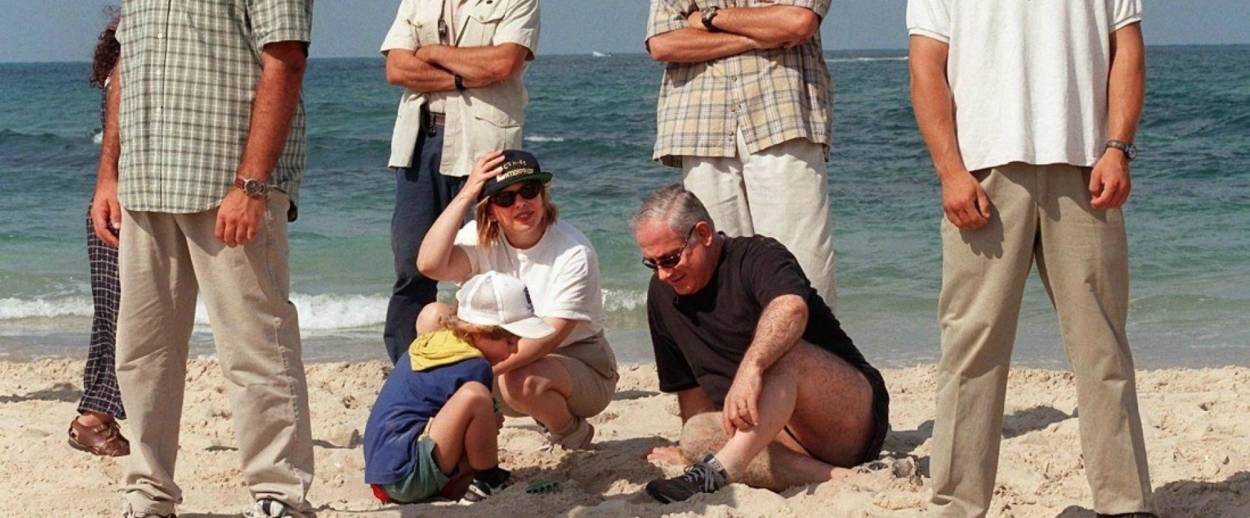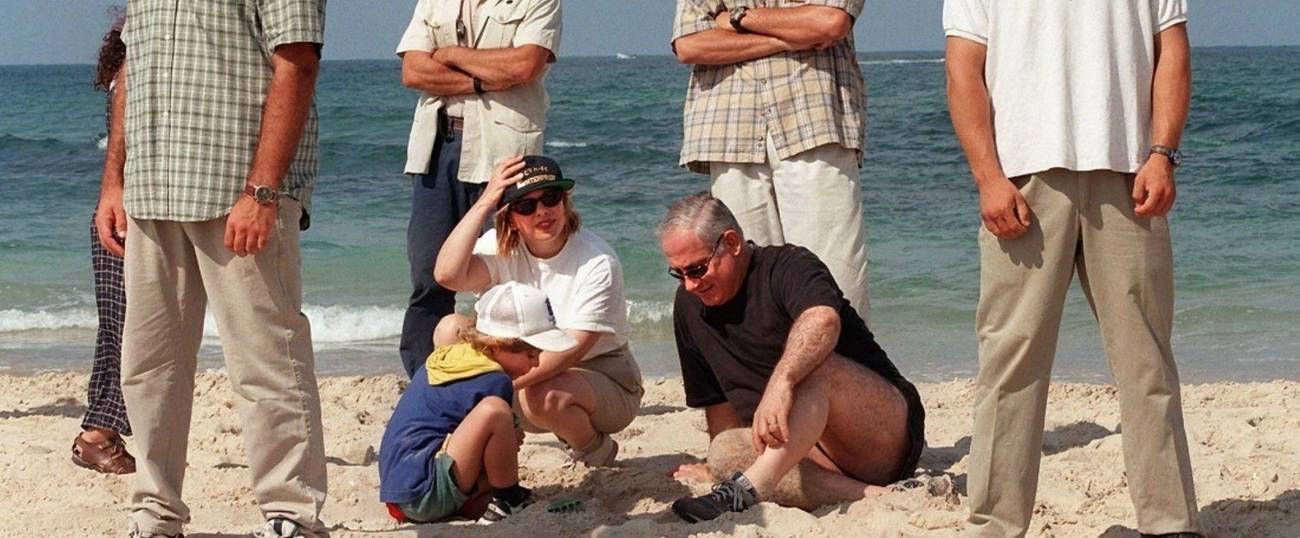At the Jerusalem Film Festival, Cinematic Portraits of King Bibi
From his role in curbing the Oslo Accords to his public-speaking prowess, the prime minister gives filmmakers fodder




The dust has settled on the Jerusalem Film Festival’s opening celebrations, but the festival is far from over. Its committed minions have descended upon the Jerusalem Cinematheque. Consulting dog-eared copies of the program, they indulge in the cream of the crop of Berlin and Cannes, averaging five or six screenings a day before the inevitable exhausted collapse.
Despite the temptation to sample the best of world cinema, the most exciting screenings at the JFF are the premieres of Israeli films. Even when their producers have managed to book earlier premieres outside of the country, the presence of cast and crew in the room add the requisite electricity. The Oslo Diaries, for example, premiered earlier this year at Sundance (as did Censored Voices, the previous work by wife-and-husband team Mor Loushy and Daniel Sivan). The documentary tells the story of the Israeli-Palestinian peace talks, beginning with the secret Oslo negotiations and climaxing in 1996. For its Israeli opening on Saturday night, the talks’ surviving veterans, along with past and present leaders of the Israeli left, were in near-full assembly.
The Oslo Diaries is not without some faults. The film begins by informing us that since no protocols were taken during the secret Oslo meetings, the only existing records are the participants’ diaries. Extensive passages from said diaries, read by actors, accompany the film and form its core. The highly expository nature of those selections soon leads one to suspect that the diaries in question were in fact written for public consumption. A bibliography shown briefly in the closing credits confirms that the film relies mostly on the previously published memoirs of its protagonists—hardly the untold story intimated at by the filmmakers. This is a shame, because Oslo Diaries, like Censored Voices before it, makes for highly compelling viewing, and needs no sensationalizing.
Granted, the film does not have the high drama or the madcap antics of Oslo, the hit play by J.T. Rogers, which has its own screen adaptation planned. But it benefits greatly from on-screen interviews with many of the Oslo alumni, including the late Shimon Peres and a surprisingly poignant Ahmed Qurei. No less so, it is admirable for wearing its heart on its sleeve: This documentary makes no secret of its agenda, and particularly of where it places the blame for the death of the Oslo process, and perhaps for the entire peace process. Suffice it to say that the film ends in 1996, with the first electoral victory of Benjamin Netanyahu, thus presenting a thesis surely worth listening to, wrestling with and—if you ask me—ultimately rejecting. The Oslo Diaries will screen on HBO on Sept. 13, the 25th anniversary of the signing of the Oslo Accords on the White House lawn.
If Netanyahu does not hold the exclusive blame for Oslo’s failure, King Bibi certainly makes the case for Netanyahu being the man who singlehandedly ushered Israeli politics into the 21st century. The new documentary essay by Dan Shadur (director of the Israelis-in-Tehran film Before the Revolution) is in some ways a particularly creative adaptation of 7 Steps to Fearless Speaking, a self-help book by Lilyan Wilder, who was Netanyahu’s public-speaking guru in his early years. Samples from what must be hundreds of media appearances over some four decades demonstrate Bibi’s disciplined, near-faultless execution of his teacher’s maxims, through which he introduced a quintessentially American method of campaigning to the Israeli public. King Bibi—which borrows its name from the 2012 Time magazine cover story—is a powerful polemic, work of history, and portrait of a nation, as seen through the television appearances of its second-longest-serving prime minister.
No doubt inspired by the success of Forever Pure, Maya Zinshtein’s magisterial documentary about the Beitar Jerusalem soccer team, nominated last week for an Emmy Award, the Israeli Sports Channel recently established a feature-film department. The back story to their freshman effort, Toklomati, played out in the Israeli sports media and gossip columns in the early aughts. Tony Toklomati, originally from the Republic of Benin, was one of the stars of the Maccabi Netanya soccer team. When reporters uncovered evidence that Toklomati was 31 years old, and not 19 as he had presented himself, he was forced to leave the team and the country, leaving behind a pregnant girlfriend.
Twelve years later, with Idan Toklomati Gurno on the cusp of his bar mitzvah, Iris Gurno—Tony’s former lover and Idan’s mother, moves heaven and earth to bring Tony back to Israel to meet the son he never met, and contemplates the rekindling of their union. Nothing goes as planned—how could it?—but Toklomati is bold, life-affirming proof that sports is as effective a launchpad as any for examining the Big Themes: family, race, society, and love.
Tal Kra-Oz is a writer based in Tel Aviv.